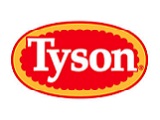Tyson Foods Settles Lawsuit Over Not Hiring Applicant with Epilepsy
Post Views 14Tyson Foods, Inc. will be paying 35,000 dollars as part of a disability discrimination settlement. The U.S. Equal Employment Opportunity Commission (EEOC) filed a lawsuit on behalf of a former employee, whose epilepsy is the reason, the EEOC alleges, that he was not hired for a particular position.
The company is one of the world’s largest processors of chicken, beef and pork. According to the EEOC, the man in question was denied an open maintenance position at Tyson Foods’ facility in Sedalia, Missouri, due to his condition. His epilepsy was regulated by his medications for 12 years, during which time he had previously been employed by the company two separate times. Since the man’s last employment, however, Tyson Foods had implemented a new practice for medical assessments. He was not hired because he did not pass a medical evaluation that was required to determine whether or not applicants with epilepsy could safely perform job functions. The evaluation was handled by a doctor who did not personally examine the applicant, but who instead made his determination by utilizing what the EEOC referred to as “outdated medical research.” A number of other employees also afflicted with epilepsy, all of whom were “grandfathered in,” held jobs at the company.
The EEOC filed the suit in May 2010, claiming a violation of the Americans with Disabilities Act (ADA). Title I of the ADA, which was initially passed into law in 1990, was designed to protect qualified employees or applicants with a disability against discrimination. The term “disability” is defined by the ADA as “a physical or mental impairment that substantially limits one or more major life activities of [an] individual.” It’s further defined by there being a record of the impairment and the individual “being regarded as having [the] impairment.”

EEOC attorney Melvin Kennedy was content with the outcome. “The potentially three-step medical assessment process agreed to by the parties is an extraordinary step in the right direction in terms of making sure disabled employees are given a full and fair opportunity to compete in the workplace,” he stated.
EEOC Regional Attorney Barbara Seely further noted that, although this particular consent decree affects the Sedalia plant, Tyson Foods has an excess of 117,000 people working at the company at over 400 separate facilities. “We are hopeful that the process we have agreed to works well enough that Tyson adopts it in other facilities,” Seely said.
Tyson Foods Settles Lawsuit Over Not Hiring Applicant with Epilepsy by Harrison Barnes



 Telecommuting Doesn’t Work for All Jobs
Telecommuting Doesn’t Work for All Jobs  5 Ways You Can Hire and Keep the Best Employees for Your Company
5 Ways You Can Hire and Keep the Best Employees for Your Company  10 Things to Look for When Hiring
10 Things to Look for When Hiring  The New Trend of Defamation Lawsuits
The New Trend of Defamation Lawsuits  What’s Lacking in the Work Place
What’s Lacking in the Work Place  Top Trends in Human Resources
Top Trends in Human Resources  How to Deal with Negative Employees
How to Deal with Negative Employees  Top 4 Most Effective Management Styles & How to Use Them
Top 4 Most Effective Management Styles & How to Use Them